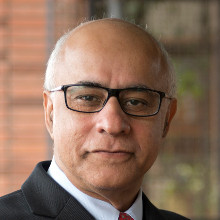[Photograph by Memyselfaneye under Creative Commons]
I joined a mid-sized owner-managed company about two years ago as its new group CEO. In this period, I rebuilt the management team, raised service levels and stepped up growth. I’ve had a fulfilling run, except that of late, the owner has begun to unnecessarily get in the way. He needlessly interferes, uses his veto power to overturn my decisions, and is becoming more and more whimsical in his own decision-making. That’s begun to take a toll on my morale. I’ve tried to reason with him that you can’t have two sets of hands on the steering wheel without creating an accident.
My guess is that he knows that. The bigger issue is that he doesn’t have much to do, and he openly says so. I’ve gently suggested that he look to improve his golf, travel the world, and find new ways to help raise our sights, but leave the operational reins to me, but to no avail. Things might start going downhill for me, if I can’t find a solution. How can I handle the situation better?
The bad news first: your work in this organization is over. Find as amicable a departure as possible, wish the owner the very best, don’t burn bridges, get yourself a reasonable financial exit package and simply move on.
One important point to remember: please don’t do what some professional CEOs and senior executives often do—they commit self-immolation in the public square as an act of anger and frustration. It makes for news the next morning but people aren’t really interested in knowing how you were brought in with sweet talk and tall promises, given a rickety house that you cleaned up and rebuilt, and how the owner chap now is making things difficult for you just after you have done that business miracle called 2x in 4y. From the tone of your question, you seem to be a nice guy; I am sure you wouldn’t do such a thing but know that many, otherwise sensible people, some of them rock stars in their time, have resorted to such stuff and it hasn’t helped them.
Meanwhile, please don’t try to reform your employer, or try to get him to move up the self-actualization ladder. His withdrawal symptoms, his angst, his ‘mother-in-law in the kitchen’ traits didn’t suddenly surface. They were there the whole time; probably it is you who didn’t read the signs, didn’t do enough homework before signing up, what with the fat joining bonus and the club membership and even as you saw a few danger signs, you actually glossed over them. And in doing that, you are not alone.
I see it happen time and again, sometimes not just with new professional CEOs in existing large-family-run businesses, but also in entrepreneurial companies where a first generation businessman begins a great new business, raises a couple of rounds of funding, brings the business to a certain level and then begins to bring in senior professionals and sometimes a CEO. There is bonhomie in the beginning and then the entrepreneur suffers withdrawal symptoms. Quite often, the honeymoon lasts under 18 months. I am sure, in recent times, you have noticed the number of high-profile CEOs who come into such companies and after a year, with meaningfully meaningless PR announcements from the company, simply “moving on to pursue other interests”?
In giving you the reins, in supporting you with the elbow room, making the funds available, and in providing the advice as needed in the early days, your employer (yes, he was the employer all this time even as you were on first name basis) was probably even doing things with good intentions. He did want to hand over the keys and go on a pilgrimage. But all of us should know that he too is human, he probably wasn’t cut out to make the transition that some others are able to make. He did offer you statements of intent that you read as promise. After that, his attempt at personal transformation hasn’t worked. You took that for granted; it is in reality an intense transition that our man couldn’t quite handle. Now he wants his toy back. His transformative journey ended as soon as the train left the station and he has jumped off. The last guy who tried to put such a chap back on the train, was found dead on the tracks. So, please be advised this one is not for you. Dialogue is not going to work here.
Now that you have reality as your friend, do move quickly. The good news is that you have turned things around. You are leaving the place in better shape than you inherited it. So, call your friend, the one that used the best head hunter firm in town last year when he changed his job, and seek a discrete introduction. You will be surprised how many good options are available out there for people like you.
As you move on, here is my advice: to the head hunter and to your potential employers, don’t say two things—one, that your current employer was a villain who cheated you.
Or, he wasn’t that bad a guy in the beginning but went back on his word when the money began to hit the bank.
Two, don’t beat your chest as the “turnaround” guy while seeking a job interview. It may sound nice, but getting positioned as one comes with serious risks downstream. Just say, you had a great team; that you had the freedom and the markets responded extremely well to a few strategic changes you all brought in. And that going forward, the business is in good hands. You don’t really know if Mr. X intends to run it himself or get someone else. Either way, that business can now get to the next level. You want to move on to other things.
People will understand.
[If you have a question for Subroto Bagchi, mail us as askbagchi@foundingfuel.com]


aranganathan Sarangan on Jan 21, 2016 5:44 p.m. said
Good EQ insight. Most of the arrangements fail in not relating to the cruz of this association. A regional retail giant or many of them struggle in letting go of the keys and cash box(es). End up with unable to scale up or grow. Sometimes even perish.